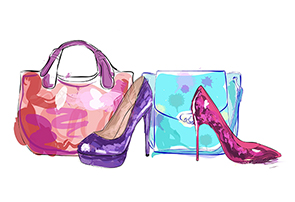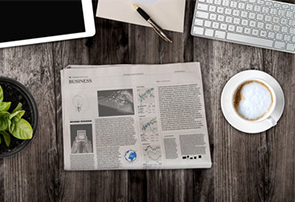IPPG's Big Plan: Making Vietnam a New "Shopping Paradise" in Asia
01 - 01 - 2022
On the occasion of the New Year, Cafebiz had an amazing talk with the Chairman of the Imex Pan Pacific Group (IPPG) - Mr. Johnathan Hanh Nguyen about his business’s two major business segments, namely luxury goods and air transportation. Luxury goods is the first and primary business segment of Mr. Jonathan's company, giving him the title "King of Luxury Goods," while air transportation is a relative newcomer with significant expectations from him for a bright future.
1. After the Covid-19 Pandemic is Over, IPPG Expects to Bring Over 40 Million Travelers to Vietnam Each Year.
Q: Hello Mr. Hanh Nguyen. Since the media has called you the "King of Luxury Goods" and this title is fairly revealing about the key business activities of Imex Pan Pacific Group (IPPG), could you please tell us more about IPPG's journey to bring international brands to Vietnam? And how do high-end brands fit into IPPG's "investment basket" during this period and in the future?
The media gave me the title "King of Luxury Goods" because of my job as a seller of luxury goods at duty-free shops and retail chains at airports, and later as the first to bring those international brands into domestic business in Vietnam. The journey to bring luxury goods into Vietnam, on the other hand, is not as glamorous as the term that people use for me.
Initially, the cost of investing in such luxury items was too expensive, and there were no buyers purchasing high-end brands during the country's early stages of opening up and development. However, we must remain committed to those brands by investing in each store/location - often up to $4 million USD - and ensuring having a standard space - frequently in expensive locations.
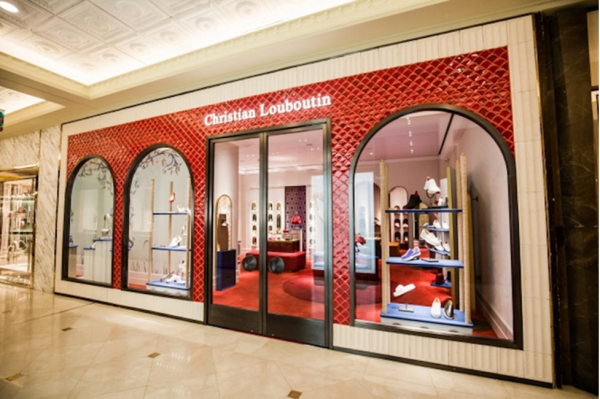
Furthermore, in order to maintain the brand's reputation, the design must be updated every 3-4 years, the items must be ordered and paid for in advance, and discounts may only be applied to certain seasonal items... However, as a result of this rigid policy, such luxury brands always have a significant number of "fans" all over the world. Of course, since the standard of living of Vietnamese people started to rise, our business has grown more favorably than ever before.
In Vietnam, IPPG might be considered a pioneer in the brand name industry. After more than 30 years on the market, the luxury category's annual sales have increased by double digits, while the Group's VIP customer list has grown by three digits each year. When compared to other businesses in the same sector, we had seen advantages such as: having good premises in major cities, aiming to invest in high-class shopping centers in the next 3-5 years, meeting the demands of "birds of a feather flock together" of high-end brands, strong experience, and so on.
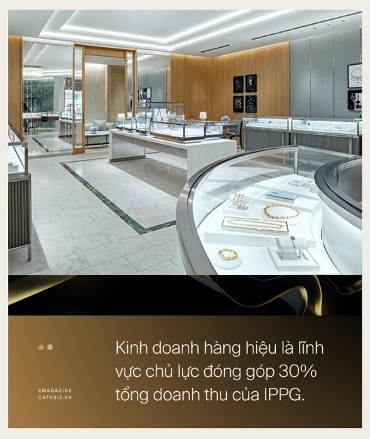
Therefore, we have several benefits when negotiating hand-to-hand with brands in terms of exclusive distribution policies, discount rates, marketing/investment support, etc. We can, for example, "offer" the same pricing in the brand's place of origin and select the product line and products that are acceptable for Vietnamese customers' tastes.
The luxury goods sector is a key business activity as well as a strength for IPPG, accounting for about 30% of the business’s total revenue. And it might increase sharply in the future if IPPG creates high-class shopping centers, non-tariff zones, and manufacturing outlets in provinces and cities with great tourism potential across the country.
Q: You just mentioned the idea of creating tax-free zones or opening Factory Outlets in Vietnam's major tourist hotspots. Is it your intention to turn Vietnam into a shopping paradise for Southeast Asia, like Thailand and Singapore have done?
In fact, tourist cities with factory outlets will attract a large number of tourists, and GDP will rise quickly as a consequence of the resonance of other values derived from tourism services. However, according to my findings, Singapore or Thailand is no longer the shopping paradise in Asia, but rather the free trade port's giant - Hainan Island (China), where international corporations are flocking to invest.
The Chinese government has transformed the island into a unique duty-free shopping mall in order to stimulate domestic consumption and attract investment from the world's leading fashion-consumer companies as well as international tourists. Since Chinese citizens are unable to travel outside of the country due to the Covid-19 pandemic, they will want to come here to shop at a tax-free rate of up to 15,000 USD per person per year during the pandemic.
According to a report by The Moodie Davitt, the tax-free sales of Hainan Island have surpassed 7.24 billion USD in a single year (July 7, 2020 - 7/2021) after the new preferential rules were implemented. Since the Covid-19 pandemic, the island's branded product sales have increased by 226 percent each year, with sales in the first six months of 2021 having almost surpassed the previous year's peak.
At the end of December 2020, we signed a commercial collaboration agreement with Lotte PK Duty Free to develop a chain of downtown duty-free shops in Da Nang and Trang Tien Plaza (Hanoi) to encourage travelers from all over the world to come to Vietnam.
Furthermore, not only do we aim to create two more premium outlets in Phu Quoc, but we also intend to open two more premium outlets in other provinces if we can reach an agreement on location requirements and investment policies. Premium Outlets remain an important factor in attracting tourists in a number of countries, including the United States, Europe, and Asia.
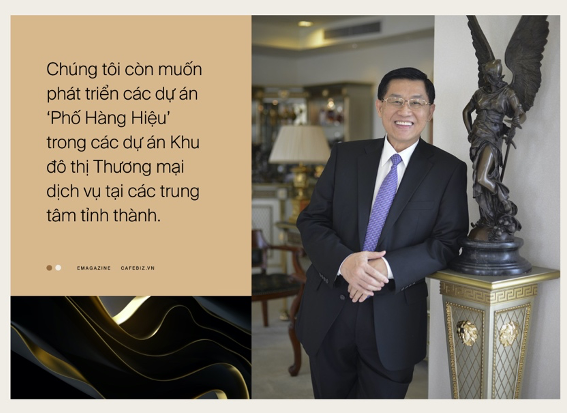
In addition to non-tariff projects, we are also developing "Hang Hieu Street," a project in those projects of Commercial and Service Urban Area in city and provinces centers, forming a bustling urban area with continuous entertainment, shopping, and dining, in 45 key projects that I am proposing, rather than simply investing in real estate to sell apartments.
Previously, international visitors to Vietnam carried 5,000 USD, with some perhaps bringing money back due to a lack of high-value shopping options. If the chain of duty-free shops along the street, premium outlets, urban commercial and service areas, etc. are implemented as planned, we expect to welcome more than 40 million visitors to Vietnam every year once the Covid-19 pandemic is under control.
--------------------
2. The Elite and Digital Generation Will Become Two Key Groups of IPPG's Customers in the Future
Q: Making that goal a reality is not a simple task. What support, in your opinion, does Vietnam need from the government and businesses like IPPG?
In order for Vietnam to become the new shopping paradise of the world in general, and Asia in particular, as I have mentioned, we need to implement game-changing policies as soon as possible. The first is to compete with "friends" in the region for foreign investment, followed by encouraging local customers and tourists to purchase luxury goods.
We need to promote development and encourage more enterprises to join in tax return programs for visitors, as governments across the world are doing. We are now working with reputable tax refund firms throughout the world to invest in a professional tax refund program across all retail locations, which we will propose to the relevant authorities for approval in the second quarter of 2022.
Q: Looking at IPPG's portfolio, it appears that the Group is working on developing a diverse ecosystem that serves Vietnam's middle and upper classes. However, we can observe that customers of the younger age group are a powerful consumer trend at this time. What is IPPG's strategy for future customer groups: Will it continue to cater to the elite or will it target the younger generation?
We will serve both since, based on our research, digital citizens are becoming a more powerful force in Vietnam's consuming landscape. According to McKinsey, a management consulting firm, by 2030, this group will contribute for 40% of total Vietnamese spending, compared with 10% in 2000.
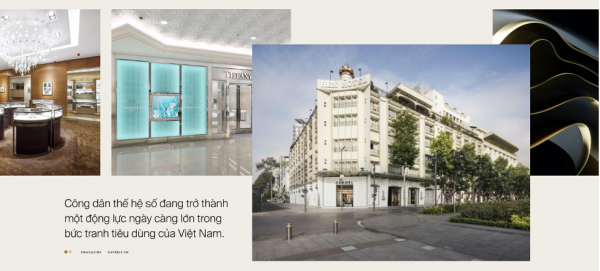
We have firmly concluded that digital citizens will be IPPG's forthcoming key customer segment. To effectively approach "the God of technology," we had to modify our sales and marketing strategies from offline to online and digital to be more fit for this new customer group.
Furthermore, consumers in the luxury sector are tending to go from online to offline. Thus, we may, for example, promote and present information online in a luxurious and professional manner in order to encourage them to visit our stores to experience high-class service offerings in-store.
IPPG also intends to invest in a self-contained service ecosystem centered on these two customer groups, with offerings ranging from dining (from fast food options to high-end restaurants), to shopping (at more than 1,000 chain stores), to entertainment - resort services, and, subsequently, to mid- to high-class urban residential developments.
---------------------
3. The Establishment Of IPP Air Cargo, First, is To "Save Ourselves."
Q: The news that the "King of Luxury Goods" plans to launch a cargo airline has recently piqued the public's curiosity. Obviously, your extensive experience in aviation will aid you much in this endeavor, but the current freight forwarding industry is dominated by large local and international companies. So, sir, how are you preparing to compete with the experienced leaders in this field?
In Vietnam, there are currently six airlines, but no specialized freight carrier. More than 80% of goods now imported and exported by air in Vietnam are transported by foreign airlines. Thus, this is an opportunity for domestic businesses like IPPG to promote air transport.
In the middle of a still-complicated pandemic, numerous airlines are struggling to transport people and are being forced to rely on cargo transportation in order to salvage money. However, passenger airplanes only have a hatch in the lower abdomen, which is normally used to transport passengers' baggage rather than cargo. Hence, the capacity available on passenger airplanes for storing goods for export and fast delivery is relatively limited. And this is merely a short-term "fire-fighting" strategy to be used during the Covid-19 outbreak period.
In fact, due to the fast expansion of e-commerce platforms, the need for carrying Vietnam's import and export commodities is increasing day by day. Meanwhile, foreign firms hold an 80% market share in cross-border freight transportation, despite several legislative constraints. Part of this is due to the lack of a dedicated domestic freight carrier in Vietnam at the moment. Furthermore, the quantity of goods exported by air is limited under the previously signed Aviation Agreement, which means that if I do not fly (specialized cargo flight), you will be unable to make the flight yourself. Import and export traffic is restricted in general.
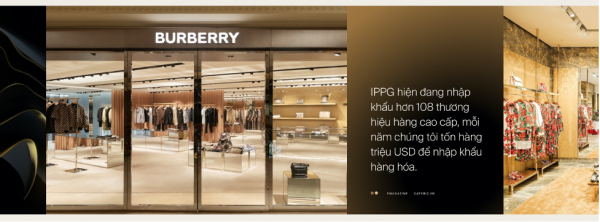
Our IPPG business now imports more than 108 high-end brands, with each year spending millions of dollars on imports. This cost is rising by the day during the Covid-19 pandemic, and it has just quadrupled. It can be observed that freight prices for air freight and marine freight continue to rise too quickly. As a result, the establishment of the freight carrier IPP Air Cargo was motivated first and foremost by the need to "save ourselves." Additionally, I have extensive knowledge in the aviation industry. I have adequate information and profitable tactics to build IPP Air Cargo and am willing to compete with the industry's experienced leaders.
Honestly, many international shipping businesses are eagerly awaiting and enthusiastically supporting the advent of IPP Air Cargo since it will allow them to increase their market share in the number of flights to Vietnam under the previously mentioned Aviation Agreement. We are also partnering since IPP Air Cargo will connect flights from major cities to provinces for international airlines, which are currently only authorized to transport goods from other countries to Ho Chi Minh City and Hanoi.
Q: With so many advantages and aspirations, how far has IPP Air Cargo progressed and what milestones are expected in the near future, sir?
We have now finished the necessary processes so that the Civil Aviation Authority of Vietnam (CAAV) will consider issuing a flight license in the first quarter of 2022. We recently signed an offer to buy ten Boeing 777F aircraft with the support of the Prime Minister, the Ministry of Transport, and the Civil Aviation Authority of Vietnam, saving hundreds of millions of dollars by ordering at the right time, when the pandemic severely impacted the aviation industry.
The first flight of IPP Air Cargo after being licenced to fly is anticipated to land at Da Nang International Airport on June 6, 2022, at the same time as the Conference on Expanding Asian Air Routes - Routes Asian, which is hosted and supported by IPPG. If all goes as planned, IPP Air Cargo will operate five small cargo planes in the first year, then seven in the second year, and ten in the third year. After 2024, we will continue to put into operation the large aircraft B777F. In its first year, the airline intended to transport around 115,000 tons of cargo, earning $71 million in revenue. IPP Air Cargo is expected to make a profit in the fourth year after its first flight.
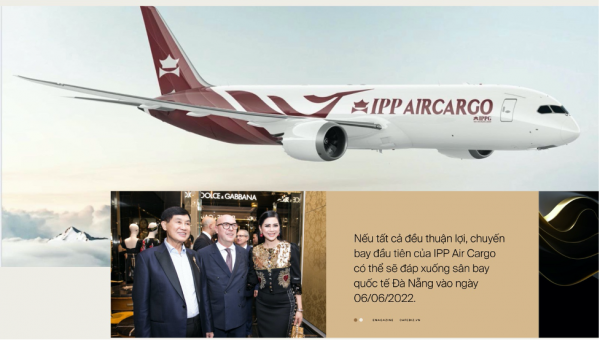
IPP Air Cargo Joint Stock Company's strategy is to create a specialized airline to transport commodities with the purpose of contributing to the stabilization of freight rates, the cost of goods and materials... As a result, reducing negative impacts on import and export, inflation risk, and economic development stability. Simultaneously, IPP Air Cargo adds to the value of vying for market share with foreign airlines in the sector of delivering Vietnamese goods on local and international routes, contributing to the overall growth of Vietnam's aviation industry.
-----------------------
4. In The Family Business, All Of My Children Hold Key Positions
Q: As an overseas Vietnamese businessman who returned to the hometown and established IPPG today, I am aware that many members of your family are involved in the company's operations. The public loves and cares for many members of your family. Can you please tell us more about each person's role in the IPPG's overall picture?
In 2002, I formed the Imex Pan Pacific Group (IPPG) and began dealing in luxury goods before expanding into other industries like as F&B, airline services, shopping malls, and so on.
Ms. Le Hong Thuy Tien, the General Director, is accompanying and standing behind me. She leads and manages all of IPPG's business activities and operations. With the family business history, we have tailored jobs to our children's skills, abilities, and hobbies. Equally, I assigned business to my children while they were still in school, so that when they graduated, my children could shake hands and take major roles in the family business.
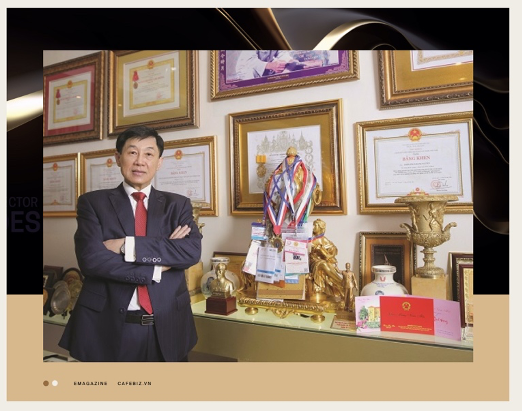
Henry Nguyen is now the General Director of IPPG in the Philippines. Louis Nguyen is the Group's Deputy General Director of Business Development and the Manager of the Group's mid-range fashion business and F&B section. Jennifer Nguyen is a Senior Manager that works alongside Louis to manage the mid-range fashion business. Phillip Nguyen is the Deputy General Director of Project Development in charge of Non-Aviation Services, which includes duty-free shops, retail outlets, and airport commercial and advertising.
Stephanie Nguyen is the Director of CUBE, an IPPG-owned interior decorating construction company. My daughter - Tien Nguyen (Thao Tien) is the Deputy General Director of IPPG's high-end fashion project development, where she is directly responsible for the business and growth of DAFC, a subsidiary of IPPG.
Finally, Hieu Nguyen, the youngest son who recently graduated from Business Administration in London, is in charge of the Group's creative initiatives such as IPP Tech, eDiGi, technology and AI, logistics, Air Cargo, and Smart City projects.
Thank you for the informative conversation!
Theo Cafebiz
Other news
24 - 10 - 2025 | Groups news
Johnathan Hanh Nguyen’s corporation has been recognized with two prestigious international awards19 - 08 - 2025 | Groups news
Johnathan Hanh Nguyen’s corporation has been recognized with two prestigious international awards29 - 07 - 2025 | Groups news
The CEO of IPPG signs a strategic partnership agreement with UN Women Vietnam.

